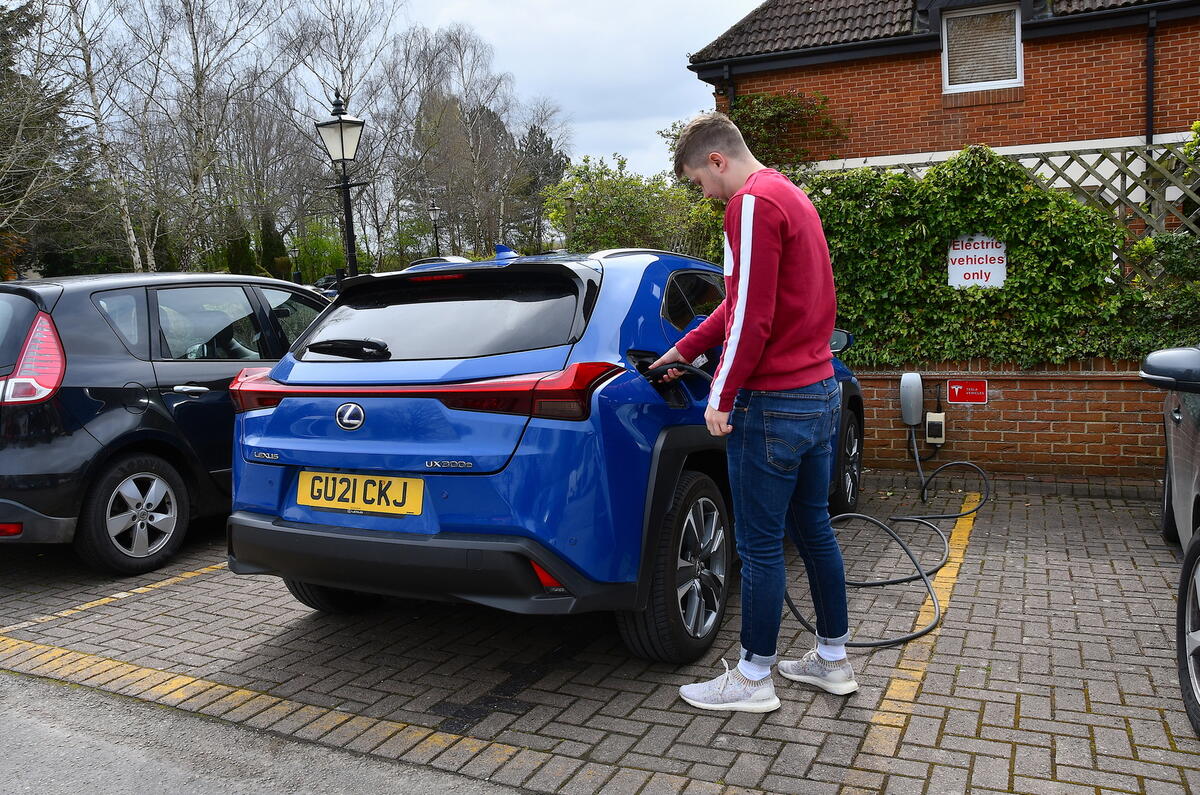One in every five cars sold in the UK is a battery-electric vehicle, new data from the Society of Motor Manufacturers and Traders (SMMT) has revealed.
The rising uptake in electric vehicle ownership is partly due to the number of models now on sale, the total having increased 15-fold over the last 11 years.
According to the SMMT, the number of mass-produced EVs on sale in the UK now stands at 140, with a further 50 due to launch throughout 2022. This is compared with nine in 2011.
“The ever-increasing number of electric-vehicle models launched by manufacturers since 2011 shows just how far Britain has come, with industry investment stimulating innovation at an ever-faster rate,” said SMMT chief executive Mike Hawes.
“With almost 200 electrified models expected to be available by the end of the year, manufacturers are turning ambitions for zero and ultra-low-emissions mobility into a reality, while motorists’ demand for these vehicles increases month by month."
Despite the increasing number of EVs on sale, however, the SMMT suggested uptake is still failing to keep up with demand due to shortages of parts, semiconductors, HGV drivers and shipping containers.
Speaking at the 2022 SMMT Test Day, Hawes said range anxiety had now been replaced with charging anxiety, suggesting 75% of motorists believe there aren't enough public chargers to meet their personal needs.
Hawes claimed additional investment into charging infrastructure is needed to ensure all parts of the UK could charge with confidence.
The government’s EV infrastructure strategy was deemed a “positive step” towards “addressing consumers’ needs”.
“To turn this nascent demand into a mass market, however, motorists need choice, affordability and the confidence to charge. The UK has an ambitious timescale to deliver net-zero, and road transport must shoulder the biggest burden delivering that goal,” Hawes said.
“The industry is up for the challenge, but we need all stakeholders, including government, charge-point providers and energy companies, to match manufacturers’ commitment by providing the competitive incentives and infrastructure that assures a zero-emissions future.”




Join the debate
Add your comment
As a casual observer, I'm not seeing "one in every five new cars being battery electric vehicles" where I am (London)... I'm not noticing that many new '22-plate cars around and most of the few I've seen - oddly, given their demonising - have been diesels. Also not seeing many charging "wallboxes" in drives here either. Despite SMMT's figures... It does feel like we still have a long, long way to go.
All these people involved in giving us a network that works seamlessly and is easy to use and is always working or repaired quickly if not, isn't going to happen overnight, yes, they've had years to get this up and running, it should be better by now, but, no, other problems from outside transport have slowed it up, invasion, Global health, local economy etc have not helped, I'm at the age now where I don't do a lot of miles, so an EV with 3-400 miles would be fine, fill up like an ICE Car quick charging would be the Cherry on the Cake for EV transport, how longs that going to take?
Hard to believe 1 in 5 car sales are a BEV, is this the model Y delivery effect, if so it needs to be pointed out in the article.